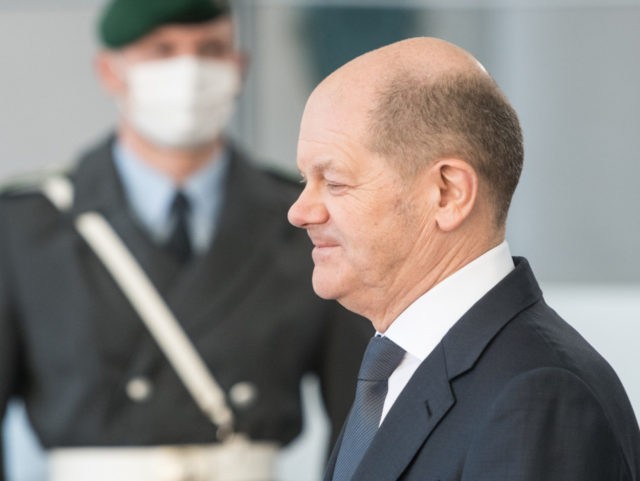A representative poll of the German population has found that voters are afraid of the effects their new government’s climate policy will have on society.
The green agenda of Germany’s new government has left the country’s population with serious concerns, according to poll results published on Tuesday.
Headed up by Chancellor Olaf Scholz of the left-wing Social Democrat Party (SPD), the new ruling “Traffic Light” coalition has only held the reins of power since December, yet they have already seen their popularity wane, with Scholz, in particular, seeing the population’s confidence in him slip since taking office.
According to a report by Der Spiegel, a majority of Germans now believe that the new coalition’s approach to tackling climate change will have a negative effect on social cohesion.
Of the 1,001 people who were personally interviewed between February 24 and March 8, some 52 per cent of respondents believed that the government’s policy would be bad for Germany’s “social climate”, with 29 per cent believing it will have neither a positive nor negative effect.
Meanwhile, only two per cent thought it would have a positive effect on the country’s social sphere.
Nearly half of respondents (49 per cent) also said that the new green policies would end up having a negative effect on them personally, with that statistic increasing to 61 per cent for those polled in eastern Germany.
“People give the traffic light government a considerable leap of faith in climate policy,” said Dominic Schwickert, who serves as managing director for the left-liberal Progressive Centre think-tank that conducted the poll.
“At the same time, there are widespread fears that the climate policy measures will lead to social upheaval,” he continued.
Germany’s Pro-Mandatory Vax Chancellor Sees Popularity Tank – Pollhttps://t.co/kSgZuWowLw
— Breitbart London (@BreitbartLondon) February 8, 2022
The poor polling for the government’s climate approach represents a general slipping of the new coalition’s popularity amongst German voters over the last number of months.
Olaf Scholz, the Chancellor of the new multi-party government has perhaps experienced the worst changes in the polls since taking office, seeing his popularity completely tank in early February.
In polling conducted early last month, 63 per cent of Germans said that the SPD politician had not been a good chancellor during his time in office, up from only 32 per cent of people who predicted he would do a poor job before he ascended to the position.
In recent weeks there has been somewhat of a turnaround for the government and its chancellor, however, with the ongoing Ukraine crisis seemingly resulting in a bump of Scholz’s personal approval rating to 39 per cent from a measly 23 per cent in mid-February.
This increase in popularity comes despite the fact that the chancellor’s government has committed to shutting down all of its nuclear power plants as part of its environmental plans as the nation is facing a crippling energy crisis as a result of Moscow’s invasion of Ukraine.
Germany has one of the worst addictions to Russian natural gas out of any European country, with 32 per cent of the country’s gas coming directly from a Russian pipeline in December of 2021.
Despite the percarious reliance on Russia, Germany will nevertheless decommission all of its nuclear reactors by the end of this year, with authorities claiming that keeping them online is not viable.
“As a result of weighing up the benefits and risks, an extension of the operating lives of the three remaining nuclear power plants is not recommended, also in view of the current gas crisis,” read an official government report on the matter, which was headed up by two German ministries under the command of the anti-Nuclear German Green Party.
Germany Ignores Looming Energy Crisis, to Close All Nuclear Power Plants https://t.co/kAFTPsILJD
— Breitbart London (@BreitbartLondon) March 10, 2022

COMMENTS
Please let us know if you're having issues with commenting.